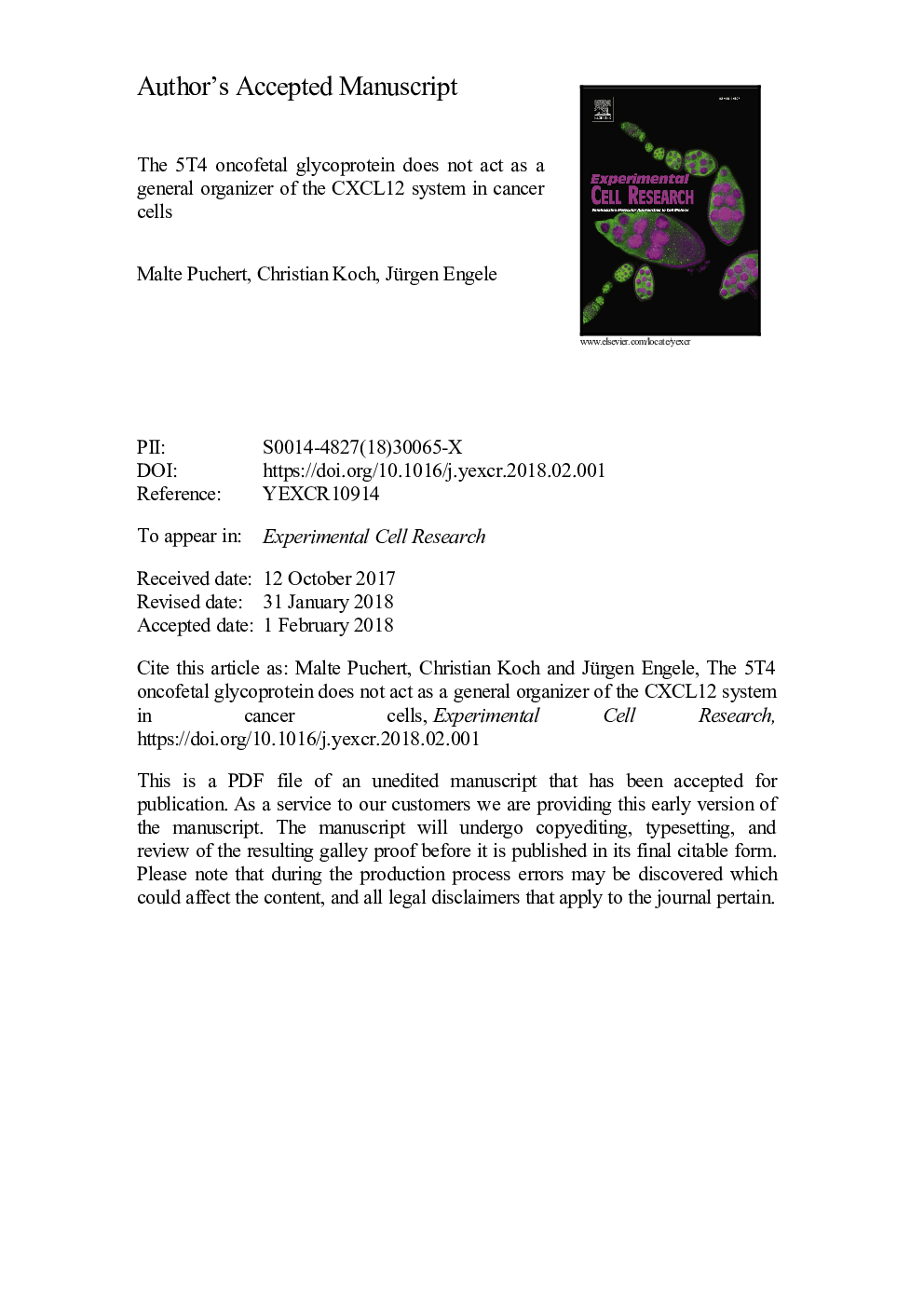| Article ID | Journal | Published Year | Pages | File Type |
|---|---|---|---|---|
| 8451074 | Experimental Cell Research | 2018 | 40 Pages |
Abstract
The chemokine, CXCL12, promotes cancer growth and metastasis through interaction with either CXCR4 and/or CXCR7. This tumor-specific organization of the CXCL12 system obscures current therapeutic approaches, aiming at the selective inactivation of CXCL12 receptors. Since it has been previously suggested that the cellular use of CXCR4 or CXCR7 is dictated by the 5T4 oncofetal glycoprotein, we have now tested whether 5T4 would represent a general and reliable marker for the organization of the CXCL12 system in cancer cells. The CXCR4 antagonist, AMD3100, as well as the CXCR7 antagonist, CCX771, demonstrated that the cancer cell lines A549, C33A, DLD-1, MDA-231, and PC-3 use either CXCR7 and/or CXCR4 for mediating CXCL12-induced chemotaxis and cell proliferation. The use of CXCL12 receptors as well as their subcellular localization remained unchanged in most cell lines following siRNA-mediated depletion of 5T4. In distinct cell lines, inhibition of 5T4 expression, however, modulated tumor cell migration and proliferation per se. Collectively our analyses fail to demonstrate general organizational influences of 5T4 of the CXCL12 system in different cancer cell lines, and, hence, dismiss its future use as a diagnostic marker.
Related Topics
Life Sciences
Biochemistry, Genetics and Molecular Biology
Cancer Research
Authors
Malte Puchert, Christian Koch, Jürgen Engele,
